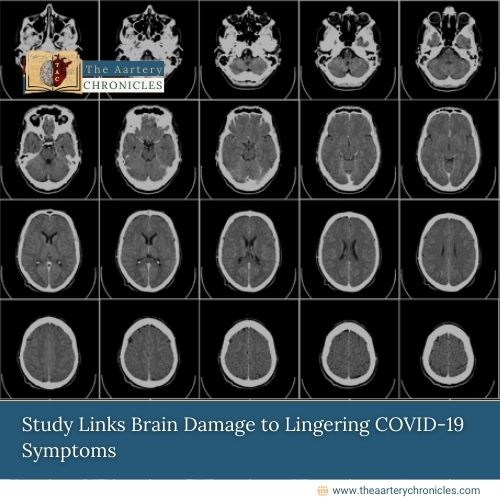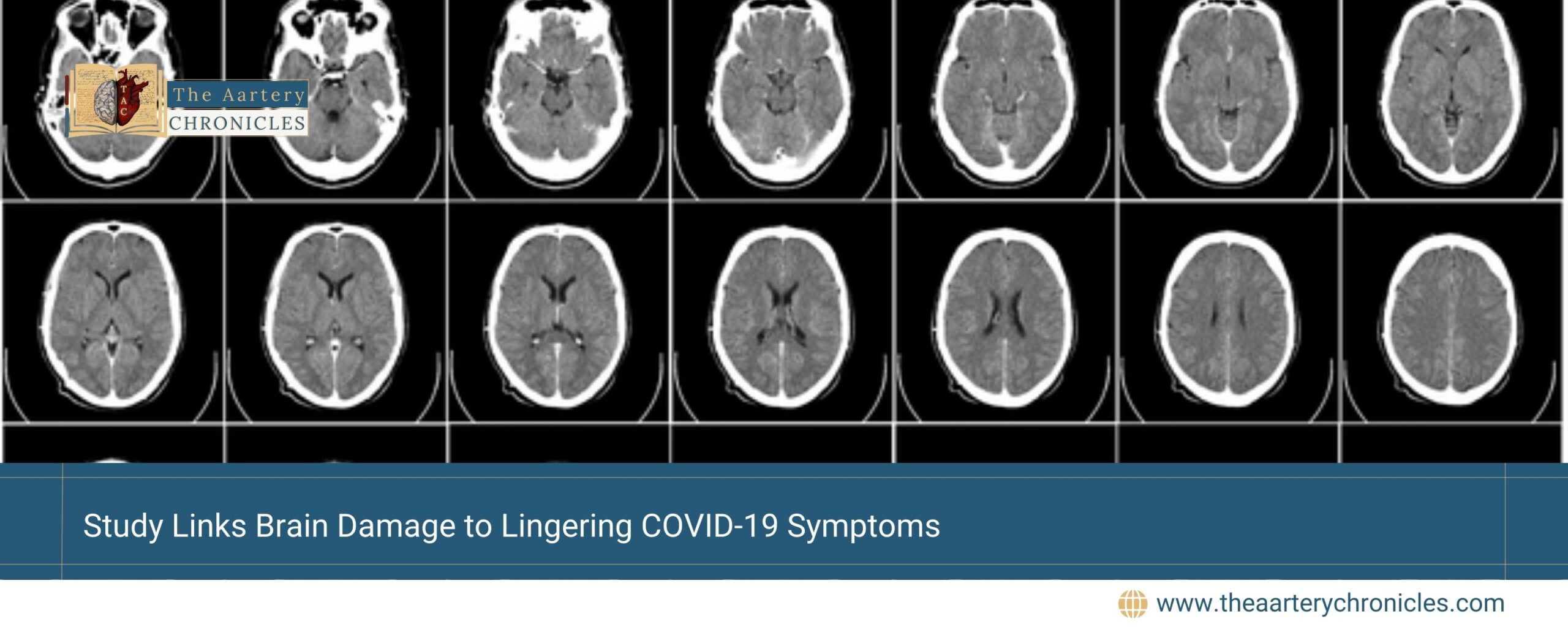

Study Links Brain Damage to Lingering COVID-19 Symptoms
Key Long-Lasting Symptoms: Fatigue, Breathlessness, and Chest Pain
Introduction
A recent study has uncovered that damage to the brainstem—the brain’s main control centre—may be responsible for the prolonged physical and mental health issues experienced by many patients after severe COVID-19 infection. Fatigue, difficulty breathing, and chest pain were found to be the most common symptoms that lingered in patients long after their initial infection.
High-Resolution Brain Scans Uncover Hidden Damage
Researchers from the Universities of Cambridge and Oxford conducted the study using advanced ultra-high-resolution brain scans to closely examine 30 individuals who were hospitalized due to severe COVID-19 early in the pandemic. Their findings, published in the journal Brain, demonstrated how the virus affected specific areas of the brainstem, which is known to control vital functions like breathing and heart rate.
Brainstem Changes Linked to Long-Term Symptoms
The brainstem, located at the base of the brain, connects the brain to the body and regulates unconscious bodily functions. Professor James Rowe, a co-leader of the study, highlighted that understanding how the brainstem is altered by COVID-19 could help explain the long-lasting symptoms of the disease and guide future treatments.
The study hypothesized that damage to critical brainstem areas could explain why symptoms like breathlessness, fatigue, and chest pain persisted long after the virus had cleared.
Neuroinflammation Found in Multiple Brainstem Regions
The researchers found that various parts of the brainstem—the medulla oblongata, pons, and midbrain—showed signs of neuroinflammation, which is the body’s immune response to infection within the nervous system. These changes were identified weeks after the patients were discharged from the hospital and were linked to both physical symptoms, like breathing difficulties, and psychological issues, such as anxiety and depression.
Implications for Other Brain-Related Conditions
Dr. Catarina Rua, a member of the research team, pointed out that the brain changes were more significant in patients who had experienced severe COVID-19, and these findings were not related to age or gender. The results also offer insights into other medical conditions that involve brainstem inflammation, such as multiple sclerosis and dementia, potentially paving the way for improved understanding and treatments for these conditions as well.
Source: Inputs from various media Sources









